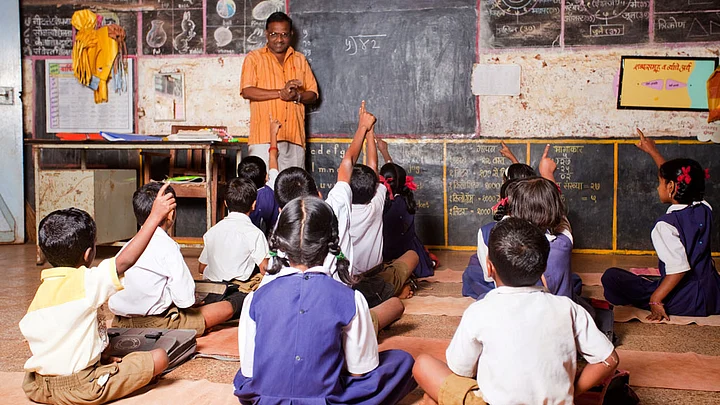- After-school education supplements school education significantly.
- Remedial education improves learning outcomes for children.
- Skill India mission could be leveraged to train many youth interested to start tuition centres.
- While education NGOs can train them in teaching skills, states and NSDC can provide them with loans and grants to run their centres.
Despite spending Rs 586,085 crore ($94 billion) on primary education in the past 10 years and 80% of education expenditure on teachers, the learning outcomes of students in India have remained dismal.
Experts have argued that the failure of formal public education system is due to various factors such as lack of untrained teachers, lack of accountability and high teacher absenteeism. Owing to the gloomy situation in the mainstream education system, providing after-school education has emerged as a proven effective intervention which has significant potential to improve learning outcomes.
After-School Education
During my Teach For India fellowship, I witnessed that since parents of kids in government schools are uneducated and aren’t able to devote much time, they send their kids to private tuition centres which claim to provide quality education. However, detailed research would tell you that the quality of education in most of these tuition centres is hopeless and primarily focus on finishing the syllabus and preparing for exams by rote methods, rather than actual learning.
Post completion of my two-year fellowship, I established Unnayan Learning Hub, an after-school centre where I provided remedial education and supported kids in government schools to build strong literacy and math skills.
From both these experiences, I learnt that after-school education supplements school education significantly. While it helps academically strong students to hone their thinking and analytical skills, slow learners get the chance to strengthen their concepts and basic skills.
Remedial Education Models Work
A research study by Abdul Lateef Jamil Poverty Action Lab (J-PAL) and Pratham India in 2005 showed that remedial education improves learning outcomes for children.
The intervention involved Pratham designing teaching materials and running demonstration classes to show how quickly and effectively children could be taught to read. Local unpaid volunteers were trained in techniques to help children learn to read and were encouraged to conduct after-school reading camps in the village that supplemented the normal primary school curriculum.
The after-school reading camps showed effective results. Children who could not read anything at baseline were 7.9% more likely to be able to read at least letters. Those who could read only letters at baseline were 3.5% more likely to read at least paragraphs or words, and 3.3% more likely to be able to read stories.
Leveraging Skill India Mission
Several interactions with tuition teachers during my TFI fellowship revealed that most of them were young graduates/college students who either taught for just earning a livelihood or to pay for their college degrees. A miniscule percentage of teachers had a real passion for teaching, but due to lack of resources and adequate support, their teaching wasn’t effective.
Here is where the Skill India Mission comes into play. On July 15, 2015, Prime Minister Narendra Modi launched the ambitious programme which aims to skill 40.2 crore workers by 2022. Under the mission, the National Skill Development and Entrepreneurship (NSDE) scheme will be launched. A draft policy of the scheme has been circulated for inputs which emphasises promoting entrepreneurship among youth and removing the negative perception of uncertainty and insecurity associated with entrepreneurship.
Modi’s ambitious mission could be leveraged to train many youth interested to start tuition centres and run them successfully, which could, in turn, improve learning outcomes among children.
Partnership with NGOs
Over the past few years, the remedial education segment has seen the entry of many NGOs such as Hippocampus Learning Centres, Sudiksha Learning Centres, Naandi Foundation, Zaya Learning Labs, etc, which have scaled their models successfully in various states.
Already, the National Skill Development Corporation (NSDC) funds projects and partners organisations focusing on skill development. Therefore, remedial education can be included as a focus area under Skill India Mission’s ambit because it will help both – graduates in entrepreneurship and teaching skills and kids in academic skills.
State governments and NSDC can partner with multiple NGOs/organisations working in remedial education; provide them funding and technical support to train young graduates in local communities for becoming education entrepreneurs. While education NGOs can train them in teaching skills, states and NSDC can provide them with loans and grants to run their centres.
If not nationally, a pilot project can definitely be launched in some regions where these NGOs have already established their presence and successfully tested their models.
(Devanik Saha is a freelance journalist based in New Delhi.)
